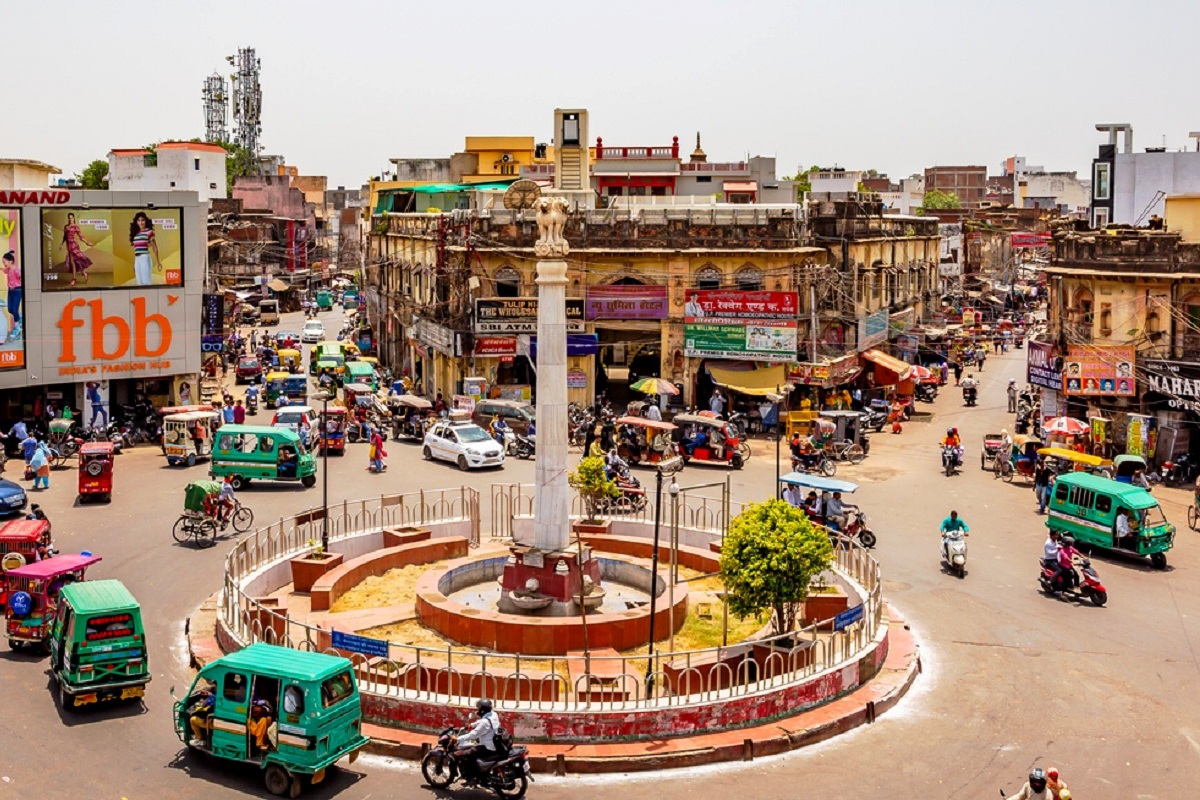September has brought a pleasant change for Delhi. From oppressive temperatures in August, the city now has cool days. The heavy rains in September did spoil traffic movement, and brought misery in waterlogged colonies. But all through the ordeal, the air has been cool, without the scorching Sun or humidity of the last month. People took out cars only because the days were pleasant.
On one such pleasant day, the renovated Chandni Chowk was formally re-opened to visitors. It remains one of the most prominent places for domestic and foreign tourists’ during their holidays in town. This is obvious because there are several add-on advantages. The majestic Red Fort is the most prominent of them. There is the historic Jama Masjid and Sis Ganj Gurdwara, besides a famous Gauri Shankar temple.
Advertisement
All these places draw crowds round the year, and are open to entry according to their schedules. Chandni Chowk itself is a treasure mine for shoppers. There is a wholesale cloth market. Lehengas, jewellery and all fineries for weddings are available aplenty. A famous wholesale spices bazar is down a kilometre walk from the Fort-end. The renovated Chandni Chowk is pedestrianised, but one has to walk carefully.
The cycle rickshaws run in both directions, from the Red Fort metro station to Fetehpuri Masjid, 1.5 km away in the interior. The rickshaws run fast, and they remain the principal means for personal transport. They often compete with each other to get as many passengers as possible. After renovation, Chandni Chowk’s main stretch does give a clean look now. There are no motor vehicles blowing horns at rickshaws, although one can spot a few scooters on the two stretches.
The motor vehicles have been banned from the bazaar as their noise and pollution created much confusion. The central verge has potted plants, and is protected by bollards, which can be used to sit, if the weather permits. A key landmark, the Fountain, opposite the Sis Ganj Gurdwara, is still mute. It has been given a fresh coat of paint. But if it had a shower of water, it would restore the place to a strong identity it enjoyed for years.
The Fountain, or the “fowarra,” comes half-way in the historic bazaar. For many years, four-seater Phut-phuts, running on Indian Chief or Harley Davidson motorcycle engines, carried passengers from the heart of Connaught Place to Fountain and back, via Asaf Ali Road and Darya Ganj. The fare was small, and people did not have to wait for buses. The phut-phuts, known so for the constant sound made by the vintage vehicles, had made Fountain a popular name.
If there was no other transport available, and such occasions were often till the Metro came, one could catch a phut-phut and reach the centre of the city. This was a cheap way to reach the Old Delhi Railway Station too. The Fountain Chowk is now known as Bhai Mati Das Chowk to commemorate the martyrdom of the great disciple of Guru Tegh Bahadur.
The Fountain with water can bring much colour to the place. Delhi’s tourist season usually started in September, but both domestic and foreign tourists disappeared after Covid. There are reports that the arrival of tourists has picked up. In such a scenario, the fowarra would definitely be a big draw for visitors. There are plans to transform Chandni Chowk into a tourist hub where street food joints will be allowed to operate till midnight. The place is already a paradise for foodies, with a paranthe wali gali, and jalebi-kachori stalls dotting the whole area.
(Contributed by: Deepak Razdan, Samir Pal & Asha Ramachandran)











